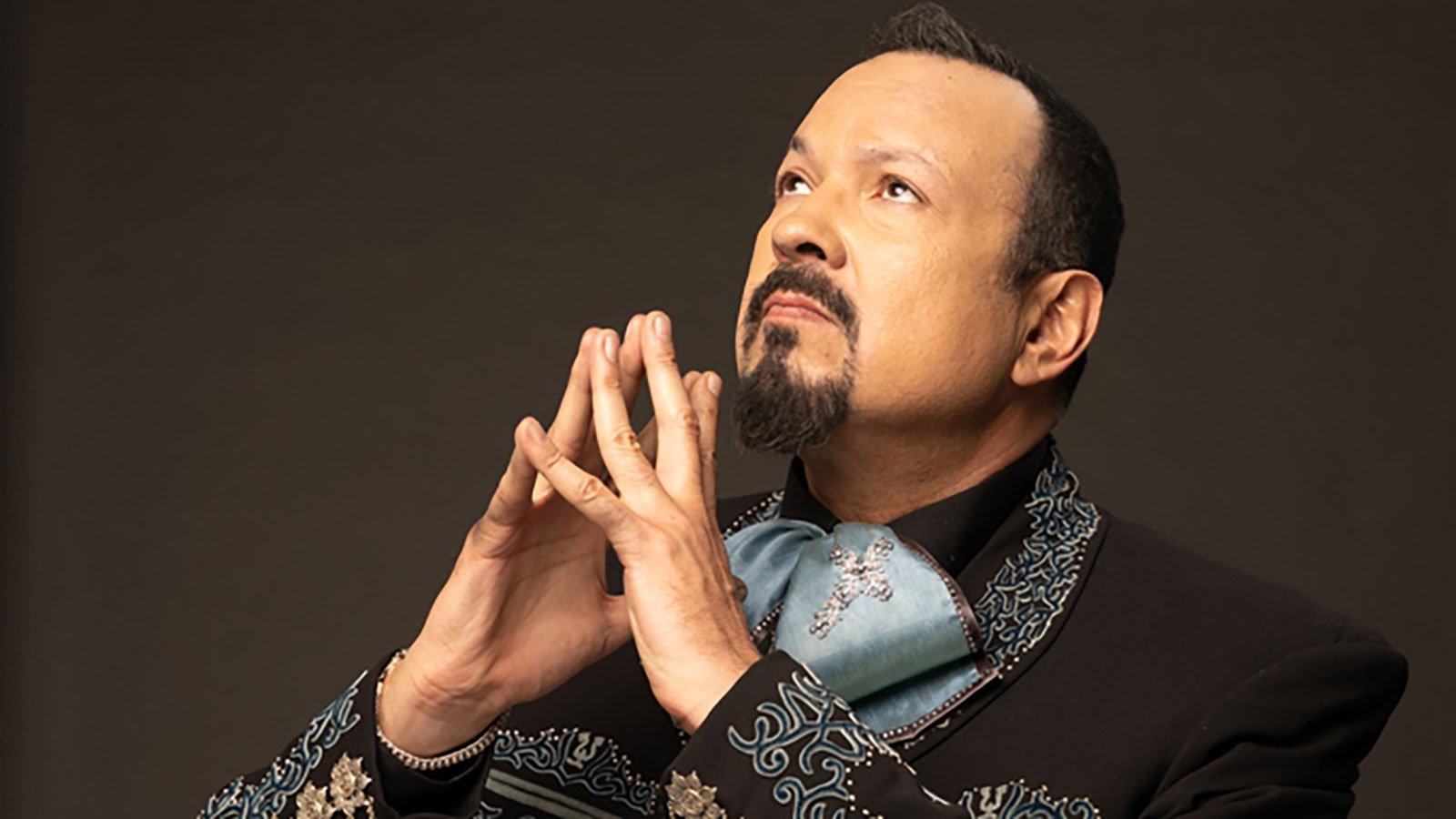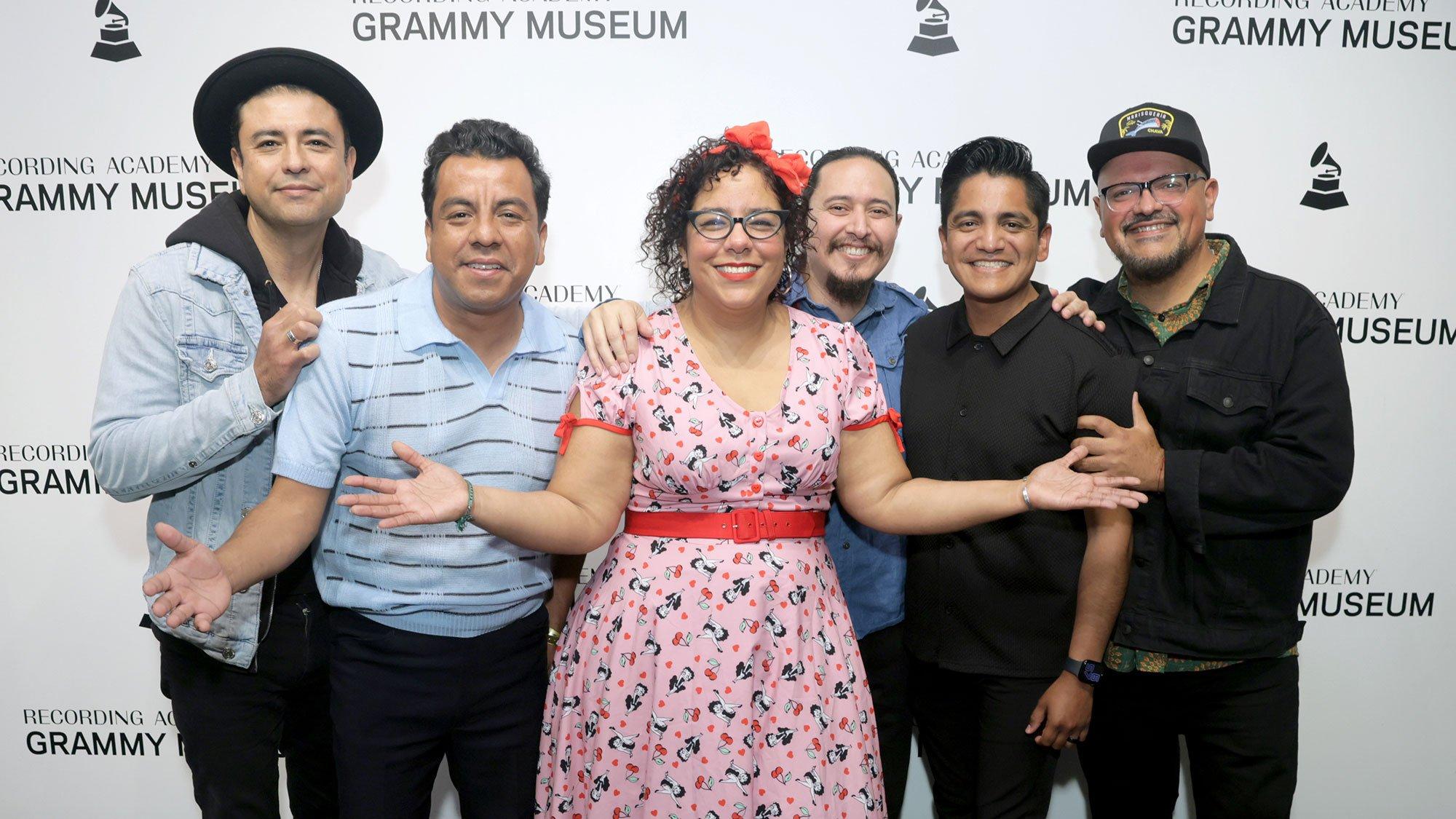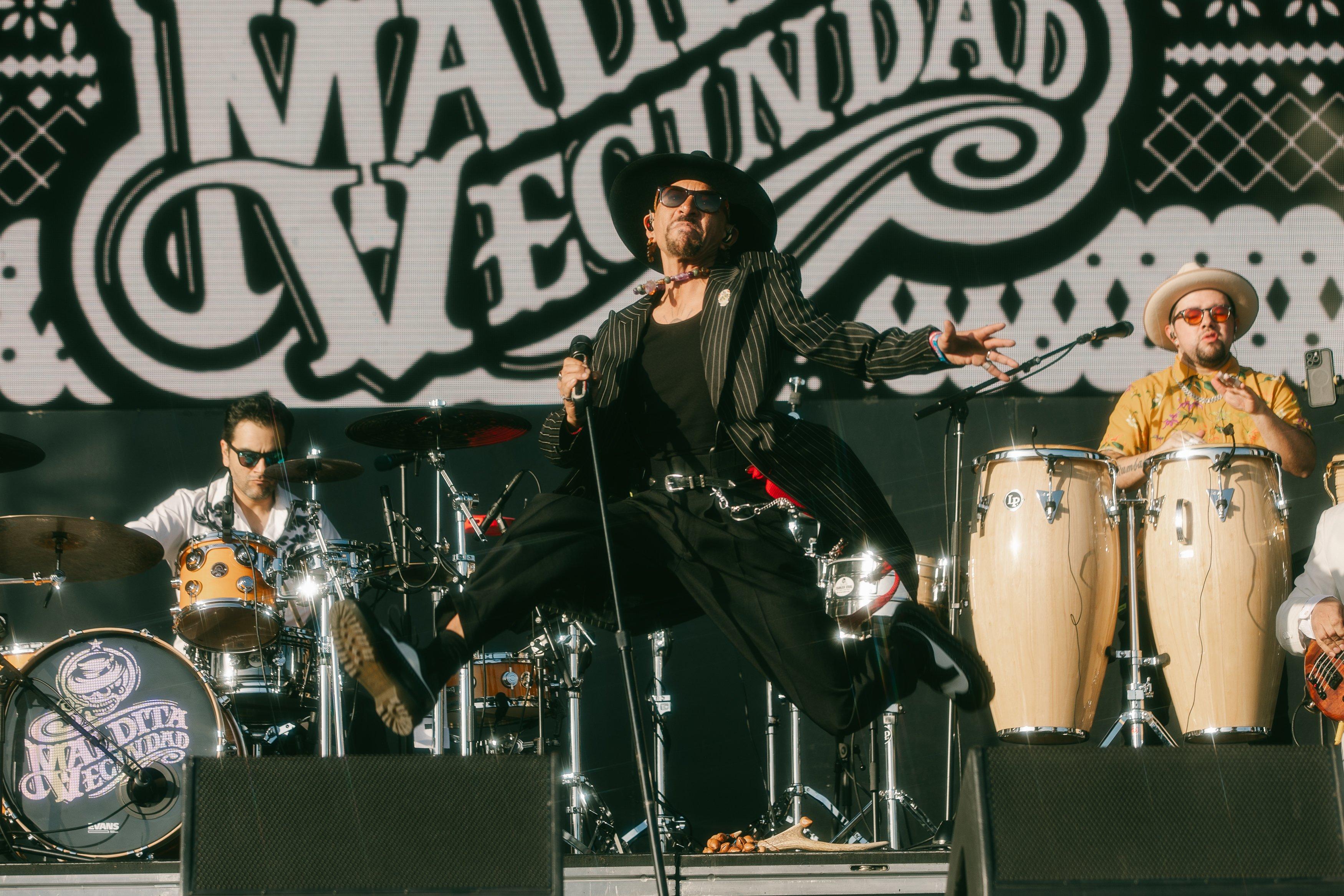For over three decades, Pepe Aguilar has proudly represented the traditions and culture of música mexicana. The iconic singer, songwriter and producer has made the biggest impact in mariachi music, penning and singing timeless love songs.
Aguilar became a worldwide phenomenon in the '90s with romantic classics like "Por Mujeres Como Tú" and "Directo Al Corazón." His deep and soulful voice, paired with honest and striking lyrics, continues the legacy of his famous parents: Flor Silvestre, an icon from the Golden Age of Mexican cinema, and Antonio Aguilar, a singer who was nicknamed "El Charro de México." To revamp the mariachi music that he grew up on in Zacatecas, Mexico, he blended in elements of Latin pop music.
Aguilar embodies the genre with his charro (Mexican horsemen), suit and sombrero during live performances. In addition to honoring the traditions of mariachi music, Aguilar has helped globalize the genre with more than 13 million albums sold, hundreds of millions of streams on Spotify, and a star on the Hollywood Walk of Fame. On top of that, Aguilar has won four GRAMMYs and four Latin GRAMMY Awards.
Now, Aguilar is bringing a new edge to mariachi music on Que Llueva Tequila, bringing elements of rock into the mix. His soaring songs become even more epic with this arena-ready sound: Mexican melodies collide with drums and electric guitars in power ballads like "Hasta Que Me Duermo" and "Corazón A Medio Día."
"I've always liked alternative rock and progressive rock," Aguilar tells GRAMMY.com. "It's something that I'm doing to keep on experimenting with. I'm also going to keep doing traditional mariachi."
To that end, the heartbreaking title track and "Contigo Aprendí," a soulful ode to his mother's memory, are puro Aguilar.
Aguilar's Jaripeo Hasta Los Huesos tour is hitting arenas across the U.S. through July. In the spirit of jaripeo (Mexican bull riding), Aguilar and children Ángela and Leonardo Aguilar, perform their songs live while riding horses. In this latest iteration of the tour, they're joined by figures from Mexican Día de los Muertos folklore.
In an interview with GRAMMY.com, Aguilar opens up about his family's legacy, keeping Mexican traditions alive, and going rock with his latest album.
You dedicated your song "Contigo Aprendí" to your mother. What did you take away from your parents to become the artist that you are today?
Professionalism, dedication, honesty, and resilience. I saw all of that in them and learned the meanings of the principles with them, among many other things.
It was a cosmic lottery because you don't choose where you're going to be born and who your parents are going to be, or if they're going to be loving parents or not. If they're going to have a strong work ethic or not. I won a cosmic lottery by being born in that environment.
Why has it been important for you to represent and keep alive the traditions of mariachi music and charro culture with your career?
Mariachi has proven itself for generations and decades, so I like that sound. It's something that also has to do with the first question about what I learned from my parents. I learned to be true to myself. I like charrería [Mexican equestrian culture] and that sport. I like mariachi. I like banda. I like that culture and that's why I do it.
You've won four GRAMMYs throughout your career. What do those GRAMMY wins mean to you?
They're very important reminders of the hard work and the dreams. It's very cool to have something that has so much validation by my colleagues, the ones that came before me, and the ones after me.
Those four GRAMMYs have meant only good things in my life. Like from the moment I was nominated and couldn't believe it, to the moment when I won my first GRAMMY, which I still couldn't believe. I was mixing an album and my wife called me and said, “Hey, you just won your first GRAMMY.” And then another one, and another one, and another one came. What I'm most proud of from my four GRAMMYs and Latin GRAMMYs is that I didn't win those with just one album. It was with different albums. That was cool.
On top of that, you won your GRAMMYs and Latin GRAMMYs as an independent artist.
For me, being independent was the natural way to go. It has been harder because it's a lot more work, but it has been a lot cooler in more ways than one — like having all the say and the responsibility and the timing, everything in your hands.
It's been a game-changer for me, so I highly recommend it, especially if you're a workaholic. Nowadays, it's not like a choice. If you want to do things in 2024, most likely you're going to have to go independent in one way or another.
What is the story behind your new album Que Llueva Tequila?
I wanted to go back to the more romantic way of doing Mexican music. I went all out. I did it, recorded it, and produced it in a year. I wanted to lean towards romanticism. I'm very proud of what happened.
It took me so long, because I wanted to find a new sound. I think we achieved that. That sound is a fusion between rock and mariachi more than pop and mariachi. I have a few pieces that are very traditional and full-on mariachi. Most of them are fusions.
"Te Confirmo" is another love song on the album that leans more towards traditional mariachi. Why is it important for you to always have that element of romance in your music?
I think that it's needed. It's also something that I feel as a person. I think romanticism is fading away. The narrative of love in songs right now is very aggressive to me in many genres. I think bringing a little romanticism and poetry doesn't hurt anyone.
Good orchestration and a big sound is not trending right now. Everybody just wants to go with one guitar. [They're] going directly to the chorus or not having any type of intro or bridge or outro. They just want to sell [music] and go directly to the chorus. I think there's nothing wrong with that, but that's not my thing.
I like to create a particular story around a song, and you feel that. The music also speaks and it needs to have that narrative as much as the voice, the melody, and the lyrics. Call me old fashioned, but I'm going to keep on doing that.
Then you lean into a bit of heartbreak with "Que Llueva Tequila." What was the story behind that song?
I like drama in my songs, and this is a romantic album, and romance is always filled with drama. With that song I wanted to go completely hardcore traditional and I did. The theme and arrangements are a homage to the more traditional mariachi days. No one's doing that. Not because no one's doing it that I'm doing it, no. It's because it should be done more.
How do you feel to see Ángela and Leonardo Aguilar following in your footsteps and their music careers blossoming?
I don't know how much they are following in my footsteps. They're making their own paths. I'm like their teacher and master of the trade. When they're finding their own place in life, their own personality, and ways, of course they're going to do their thing their way.
If their way is similar to mine, then that's fine. That's going to be their way regardless. I love it! I'm very proud that they're doing cool things with music and that they are growing every day.
How would you describe the experience of bringing to life the Mexican jaripeo tradition with them on your tour?
It's been a rollercoaster ride. Amazing and very hard and lots of work and tremendous satisfaction. We've been doing it for almost seven years now with the pandemic in the middle. It's great to see how people enjoy their traditions and how they're proud of them and how they take the whole family to see this thing. It's amazing how in the 21st century, there are charros on horseback singing with mariachi and Día de los Muertos characters filling up arenas with a family as the center attraction. It's an honor. It's been pretty cool. It's also evolving, so let's see where it takes us.
What do you see for the future of mariachi music?
I don't see it ending anytime soon because the new generations are adopting it. Maybe they're not dressed up like charros, but you have Christian Nodal, Carín León, and a lot of people singing with mariachi. Banda acts and their vocalists are doing singles with mariachi like Banda MS. Alfredo Olivas and Luis R. Conriquez — people that normally do banda or norteño music or corridos — they end up singing one or two songs on their albums with mariachi.
I don't think it's going to end anytime soon, especially since people like Ángela and Leonardo are doing it at a very high quality level. It's just the beginning.
After having accomplished so much, what do you want to achieve next?
[Representing música mexicana] is a consequence of the actions that I have done for my beliefs and my own goals. I believe in my culture. I believe in charros, in charrería, in mariachi, and in banda. I consume it. I like it. That's why I do it, and if that's inspired other people to get identified with their culture, that's amazing.
Now I see that it's a responsibility. Now I see that a lot of people can get inspired and do something about preserving the traditions. Most definitely there are a lot more things to achieve. I'm ready to do whatever comes next. I'm very happy to keep on evolving and reinventing myself. I don't know where that's going to take me, but I'm nowhere near the potential that we have.
Grupo Frontera On 'Jugando A Que No Pasa Nada' & Fully Expressing Themselves: "This Album Was Made From The Heart"




